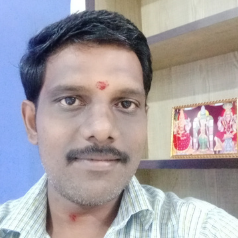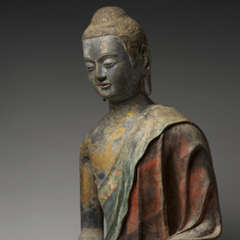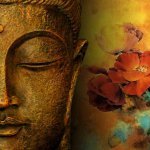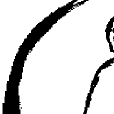Search the Community
Showing results for tags 'Buddhism'.
Found 78 results
-

The Importance of Anatman/Anatta in Buddhism
forestofemptiness posted a topic in Buddhist Discussion
The Importance of Anatman/Anatta in Buddhism Many people question whether the Buddha secretly taught a self. Although the vast majority of Buddhists suttas and sutras deny the existence of a self, some people believe that this is a provisional teaching and not to be taken as an ultimate teaching. I offer some conceptual thoughts on the matter, understanding that concepts cannot really capture the teaching. After many years of study with great masters, I have come to realize that not only is no self important to Buddhism, it is at the very heart of the teachings. I encourage people who are really interested to find a proper teacher and practice to fruition. 1. From a Mahayana point of view, the self is empty. People often mistake “emptiness” and think “nothingness.” In English, when we say the glass is empty, we mean nothing is in the glass. But this is not what the Buddhists mean. Buddhist usually explain emptiness in one of two ways: a. Emptiness means the lack of an independent, unitary, permanent self. b. Emptiness means that what appears is not graspable. These two are not opposed. If something is graspable, then it would have an independent, unitary, permanent self. Likewise, if something has an independent, unitary, permanent self, it should be graspable. If we can grasp something, it should be fixed and findable. 2. The first consequence of emptiness is change or impermanence. Because nothing is fixed, everything changes. If things has fixed, permanent selves, they would not change (i.e. they would be permanent). In other words, ice would always be ice. Atoms couldn’t change position or move. Our bodies would never age, grow sick, or die. From a spiritual point of view, this is good news. If a person is ignorant, such a person would always be ignorant. If a person is bound, such a person would always be bound. But because these things are empty, this is not the case. Freedom is possible. Even more important, creation is possible. From a Buddhist point of view, because there is nothing fixed, anything can arise. In this case, the universe has arisen. 3. The second consequence of emptiness is dependent origination. Dependent origination means that everything is interdependent. Remember, emptiness means there is no independent self. If things were independent, they could not have any effect on one another. An ice cube in a glass would never melt, or cool the ice because the ice would always be ice and the water would always be water at a certain temperature. Consider all the causes and conditions that led me to write this and you to read it: first we need a universe, a sun, the earth, a body, parents, civilization, etc. Everything has come together to produce this moment. Emptiness allows for relationship. Without emptiness, two things would never relate to one another. Things would either be permanently the same, or permanently different. There could be no interaction. 4. The third consequence of emptiness is karma. Actions have consequences. If people had fixed, permanent, immutable selves, then there would be no point in spiritual practice. One would be as one is, and there is nothing that can be done about. There would be no problem with murder, theft, and lying. 5. The fourth consequence of emptiness is dissatisfaction, or dukkha. Because nothing is permanent, nothing can give us permanent satisfaction. 6. The fifth consequence of emptiness are the Four Noble Truths. The Four Noble truths state that there is suffering, there is a cause for suffering, there is a cessation to suffering, and there is a way to end suffering. From a Buddhist point of view, the problem is clinging and grasping. However, because things are empty, we cannot cling or grasp onto them. This fundamental ignorance is the cause of suffering. Accordingly, we try to cling and grasp onto what cannot be clung to or grasped. The solution in this case is to see things are they are (empty) and cease clinging and grasping (cessation). 7. As stated, emptiness is also not nothingness--- this would be nihilism. So how to things appear? The typical Buddhist examples are to compare the mind to space and phenomenon to a dream. a. The mind is compared to space. It has no fixed characteristics. Because it has no fixed characteristics, anything can appear. Unlike space, the mind has an ability to know the objects that arise within it. Some people are unable to understand this, because they think that one prevents the others. If the mind knows, it must have a self. Or if it is empty of characteristics, it must know. However, experience shows that this is not the case: the mind is empty, and yet it knows. Consider the electron that can appear sometimes as a wave and sometimes as a photon. Things don’t always fit into tidy boxes. b. Objects are compared to dreams. When we dream at night, we may have bodies, eat, swim, run and play like we would normally do. The substance of dreams and the substance of the waking state are the same: we experience colors, sounds, sensations and so on. However, it is easy to see that a dream is completely unreal. Accordingly, the doctrine of emptiness is woven very deeply into Buddhist teachings. If we eliminate emptiness and no self, then the entire teaching is incoherent. There is a lot of resistance to some of these Buddhist teachings. One of my teachers has said that when we find resistance to a teaching, we often find the ego trying to steer us away from teachings that threaten it. And there is no more threatening teaching to the ego than no self. I know other paths take other approaches. I am not putting forth the Buddhist path as the supreme or only path, but only as one possibility. -

Your Professional Decline Is Coming (Much) Sooner Than You Think
escott posted a topic in General Discussion
I did not see the direction this article ultimately took coming. I've been feeling burned out at work. I've been thinking a lot about how I'm going to keep this going for another 15-20 years before I can retire. So, one might think this is going to be your typical business/career advice article. It starts out telling a story about an unnamed (but real) celebrity/hero then moves on to Darwin, Bach, and some others. Then it takes a turn with an account about a visit to a guru in India, Sri Nochur Venkataraman, and lands on the topic of Vanaprastha (loosely translated as "retiring into the forest"). Then it goes on to discuss corpse meditation done in many Theravada Buddhist monasteries. Anyway, lots to think about. It's a fantastic read. https://www.theatlantic.com/magazine/archive/2019/07/work-peak-professional-decline/590650/ -
Hi All I'll do my best to explain what brought me here. I began having energetic experiences about 3 years ago through the practice of the Wim Hof Method. His method (for those who don't know) combines breath work with progressive cold exposure. During this practice I would experience sensations best described as "magnetic" in my hands, belly and head during the breath holds. I also began to experience light behind my forehead when I had my eyes closed. I continued this practice for a while but at a certain point I felt that it was a little too frenetic and jarring to my system. I kind of modified the breath practices by slowing down the breathing and limited the cold exposure. A year later I went on a 5 day silent meditation retreat in the Insight tradition. My experience on this retreat was profound and afterwards I began to take meditation very seriously. After about 4 or 5 months of diligent practice I began to have extremely intense bouts of crying and emotional release. These experiences were often accompanied by an intense magnetic sensation in my chest. I had a history of trauma and had battled depression for most of my life... steady meditation practice was essentially releasing the valve on my emotional pressure cooker. I was very overwhelmed by these experiences, but I eventually found a buddhist teacher and a therapist that practiced western psychology within a buddhist framework who I am still working with. These experiences really threw a huge curveball into my life, and the last couple of years have been full of really intense transition and emotional release. As I began to gain some confidence with all the energetic experiences I had been having, I wanted to learn a way to work with them, so I started learning to practice Donna Eden's Energy Medicine, and eventually I enrolled at an Eastern Medicine school to learn Massage Therapy. My most recent experience with the subtle energy happened a few months ago during a moment of intimacy with my partner. My body began convulsing, I started sobbing and I was thrown into intense flashbacks from childhood as well as "memories" that I could not recall from this lifetime. This went on for about 4 hours and was accompanied by many intense visual experiences. Since this has happened, my body has continued tremoring and I've felt a build up of energy in my pelvic floor that is sometimes incredibly difficult to manage - either causing a "hemorrhoid" feeling or intense and difficult to manage sexual energy. A few times, I've been able to draw the energy up to my crown and back down through breathing, resulting in some pretty blissful experiences, but I haven't been able to do it consistently and for the most part this energy has been very difficult to manage. So I'm here looking for some recommendations for practice - While I do have a background in the Martial Arts (Kenpo) I don't have a ton of experience with Qi Gong... I've taken a few classes and read some Mantak Chia but I've never dove into the practice, I find it difficult to learn these things through books. I live in the NY area and am definitely interested in meeting teachers or other practitioners who my experiences resonate with. I'm also happy to have a place to share these experiences where people will have more understanding and experience with what I'm going through.
-

Consciousness in Zen Buddhism and how it relates to Vedanta
dwai posted a topic in General Discussion
My spiritual mentor is a venerable spiritual stalwart who was a direct disciple of two jivanamuktas in the Hindu tradition (one being the Shankaracharya of the Sringeri Math), a student of a Zen lineage holder (3rd generation dharma heir of Hsu Yun). He is a most spectacular individual, who somehow took it upon himself to guide me (as to why, is mystifying for me, but I'm not complaining ). Well, he asked me to read a book titled "Zen: The Dawn in the West", by Roshi Philip Kapleau. I've already done some studying of the buddhist sutras and found myself agreeing with everything the Buddha had said anyway. I'm halfway through the book and in it I found the most lucid, pragmatic and no-nonsense directions and advice about meditation and the spiritual approach, that I thought I'd recommend it here. At the same time, I found a beautiful illustration of the model of consciousness according to (Zen) buddhism, which piqued my interest. I have taken that model and added a correlation to the Vedantic model of consciousness (Being actually) which some might find of interest. In the above diagram, the left hand side is from the original book and the right hand side is my addition. It becomes infinitely clear that there is a wonderful overlap between the Buddhist model and the vedantic models. In the buddhist model, the first 6 levels of consciousness map very neatly into the vedantic (and actually samkhya) model of the five tanmatras (associated with the sense functions) and part of the mental apparatuses that identifies with the body (ego). The mind, intellect aspect of the antahkarana seem to correlate with the level 7 (termed manas in the buddhist model) while the chitta aspect (storehouse of impressions) seems to correlate with the 8th level or "relative Alaya consciousness". This also seems to correlate with the causal body (kārana sharira) which is said to contain the karmic seeds (samsakaras) from which spring forth actions and consequences in a cyclical manner. At level 9, is absolute Alaya consciousness, which he labels "Formless Self or True-Nature". This maps very nicely as Atman (Vedantic model). Somethings to ponder for sure. I hope this will lead to "peaceful" explorations of the areas of consensus, which has always been my primary interest. -
It is interesting to read and listen to Awakened teachers that have come from a long established lineage as well as teachers that have Awakened and then adopted a long established lineage as their teaching. It is also interesting to see Awakened teachers using their own words from the present and often changing the typical fashion of going about helping students to be pointed in practice and general sniffing around trying to get a clue what this “illusion” thing is all about. There is no question that there are benefits to a great well established lineage. And it is very possible for an Awakened teacher to adopt a lineage in which they have no prior base. But I am acutely aware that many of the past lineages of the very best and most productive sorts have wording and dogma that make it nearly impossible to clarify in a new students mind even the slightest whiff of what they are actually alluding to and teaching. Some of the most refreshing and superb Awakened teachers are uncompromisingly direct and clarify the “project” of Awakening so simply and so well that by comparison many extraordinary old lineages appear to actually create more detours than road maps by entailing incalculable destinations and using words and structures of teaching that are basically misleading by their vary exactness. I am not starting this topic with any objection - it is a remembrance that when I Awoke the experience was so utterly and completely unlike anything I had read anywhere in the great ancient traditions that I was completely unsure of what had transpired. And it is in this remembrance that this topic is created. I am from the “long” traditions - lots of practice and the idea that perhaps in ten lifetimes you might Awaken - they are in many ways as perfect as they are full of bullshit. Yet some of the emerging short forms - particularly those engineering quick Awakening are also very questionable. But some new teachings are very clear and offer real lasting abiding Awakening from simple yet strong well worded contemporary guidance. What cannot be expressed very clearly to many reading this is that once Awakened some stupidly simple teachings are clearly seen to be among the very best teachings to Awaken and some of the most superb and complex lineages make it nearly impossible to see the Forrest through the trees. Some seemingly very simple Awakened teachers are unquestionably the best pointers to truth and best practices for Awakening to Self, while some of the most authoritative Awakened teachers from some of the oldest and finest lineages are simply so immersed in initiations and transmissions and proper progress that they have put the cart before the horse to a great extent - as though teaching post Awakening work is best done prior to Awakening. It is tempting to utilize an old and wonderful lineage as an Awakened person considering or being brought into teaching - everything is already laid out and easily tweaked where one would like and students can plug into the tradition. It can also radically slow further progress in one’s post Awakened unfolding. And deep within one Awakened can wonder if teaching is what will be happening if at all. I also partly bring this up because of how brutally some “advanced” seekers judge “simple teachers” who are often obviously to those Awake of the highest attainment and often speak little from any lineage at all.
- 76 replies
-
- 6
-

-

-
- awakening
- enlightenment
- (and 5 more)
-

Non-dual awareness is without attributes. But what about Love?
dwai posted a topic in General Discussion
https://www.medhajournal.com/non-dual-awareness-is-without-attributes-but-what-about-love/ -
Hello, This is a summary of "How to" notes that I have compiled from various books/sources on meditation. Most specifically the "Natural State" or "Ordinary Mind" form the Tibetan Mahamudra practice. While it is based on the Kagyu School of Tibetan Buddhism it is also identical to the Japanese Zen tradition of Soto where the state of Shikantaza is practiced. Shikantaza is also known as "Serene Reflection" or "Silent Illumination" from the Caodong (Chinese version of soto zen) School. Essentially Mahamudra and Shikantaza are paths of enlightenment in and of themselves. Enlightened states of non-attaining, and non-thought, uncontrived states of mind. Sometimes they are known as the culmination of Shamatha and Vispashyana, but from the Buddhist world they are their own entity and beast. As Tibetans refer to this state as the The true nature of the mind, original face, natural state, etc. These act as mindfulness guides that can be implemented in sitting, walking, or activity through out the day to help stabilize one in the natural state of Mahamudra or Shikantaza: Attention Revolution (Alan Wallace) Let your mind be like the sky The sky never reacts It doesn't stop anything from moving through it It doesn't hold onto anything that's present nor does it control anything Whatever thoughts or mental images arise, you simply observe them Without distraction and without grasping Without being either attracted or repulsed by them Just let them be Instead of letting thoughts go, you let them be Don't prefer one kind of thought to another Don't even prefer the absence of thoughts to the presence of thoughts They are not the problem Being distracted by and grasping onto thoughts is the problem Let the space of awareness remain as expansive as possible When thoughts arise, let them play out their course Regardless of their nature or duration It is crucial to observe the movement of thoughts without intervention Mahamudra Teaching (Garchen Rinpoche) Stay just with your thought as it rises, so as to not give it form, or side with the thought as good, bad, or any reference. When mindful of giving form to thought or mental happening, just let your mind relax. Don't investigate further (This is to not attach to it). We establish this view of "nothing to see, nothing to objectify, nothing to project. We imbue this view with certainty Don't get discouraged Simply do not follow after the thoughts Don't make any commentary on the thought, let it rise then dissolve As any thought arises, you just see it Any conceptual thought that arises has no any essence No essence at all There is nothing to follow Not rejecting the suffering, not attaching to the happiness Whatever comes let it come, just sustain the Mahamudra Clarifying the Natural State: Dakpo Tashi Namgyal Undistractedly maintain the natural state of your mind with a naturally aware presence, no matter how it is or what is perceived or felt. Continue the practice with unbound ease without pinpointing whatever is experienced Take care not to stray into intellectual analysis, thoughtless calm, savoring a meditative experience or hankering after the ensuing certainty. Do not entertain any ambitions about what should or should not be cultivated by meditating. Do not be happy when calm or unhappy when thoughts move; rather, relax your attention loosely. Do not inhibit one thing while promoting another. Leave your attention as it naturally is – relaxed and free. Zazen Instructions (Global soto-zen.net) Do not concentrate on any particular object or control your thought. When various thoughts arise in your mind, do not become caught up by them or struggle with them; Neither pursue nor try to escape from them. Just leave your thoughts alone, allowing them to come up and go away freely. The essential thing in doing zazen is to awaken from distraction and dullness and return to the right posture moment by moment. Rules for Meditation from Dogen (FUKANZAZENGI) Cut all ties, give up everything Think of neither good nor evil, consider neither right nor wrong Control mind function, will, consciousness, memory, perception and understanding You must not strive thus to become Buddha
-
Can anyone tell me the exact Sutra or Sutras that Buddha gave of the 5 preliminaries before moving on to the 4 foundations of mindfulness?
- 1 reply
-
- 1
-

-
- preliminaries
- sutra
-
(and 2 more)
Tagged with:
-

spiritual enlightenment Spiritual Enlightenment Demystified
Shanmugam posted a topic in General Discussion
A talk about spiritual enlightenment: https://youtu.be/ghsFEVeLbCk This talk discusses the following:1)Why seek Spiritual Enlightenment?2) Hedonic treadmill - A psychological theory which is related to the motivations behind seeking spiritual enlightenment.3) Some misconceptions about spiritual enlightenment.4) How duality or sense of separation is created.and more... -

What is Spiritual Enlightenment - A Detailed Description
Shanmugam posted a topic in General Discussion
I am sharing an answer that I wrote in Quora. Hope people find this useful, especially the newbies in this forum: The word ‘Enlightenment’ can be defined in many different ways. We have so many words in different traditions which are synonymous with the term ‘spiritual enlightenment’. The list of words are endless and the definitions are endless too. Some people exaggerate it, some people understate it, some people say that there is no such thing called enlightenment while the majority of the world’s population haven’t even heard of it. First, let me describe spiritual enlightenment in terms of what disappears. Deep down in people’s minds, there is an underlying dissatisfaction with the way things are. People want many things to be different from the way they actually are. There is a craving for becoming something that one is not and there is a resistance to the way things are. Everyone is moving towards a goal, a destination that is in the future. The hopes of arriving at that destination seem to give some solace and if those hopes and dreams are threatened, we tend to suffer. This burning uneasiness and dissatisfaction can be likened to a fire that is burning. The extinction of this fire is enlightenment. The word ‘Nirvana’ means extinction. The Truth About Spiritual Enlightenment — book trailer There are also two other words ‘moksha’ and ‘mukthi’, which literally mean ‘liberation’. These words refer to how enlightenment feels like. A typical human being is bound by various things. He is bound by his own past intentions. He is bound by his beliefs. He is bound by the opinions of other people. But deep inside the heart of every human being, there is a longing to become boundless and expansive. We try to accomplish this by accumulation; we accumulate knowledge, possession and experiences hoping that these accumulations will make us boundless. But these very accumulations cause further bondage. Now you have to protect them because losing them will essentially mean losing yourself; because you derive a sense of identity from these accumulations. A typical human being is actually in a self-made prison. But the saddest part is that the majority of the population don’t realize that they are in such a prison. Spiritual Enlightenment liberates you from the self-made prison I have heard a quote by some anonymous person which goes like this: “One of the greatest mental freedoms is truly not caring what anyone else thinks of you”.. Imagine the kind of freedom you will get when you no longer worry about what other people think about you. And, also imagine the kind of freedom you will get when you are no longer afraid of losing anything. Imagine the kind of freedom you will get when you no longer worry about future and past! What is usually called as enlightenment is the greatest freedom ever. It is not only a combination of all kinds of freedoms that I just talked about but it is also a freedom from the sense of a separate self. It is a permanent freedom from the story you have about you. Once a person is enlightened, he feels like a huge load has been taken off of his shoulders. There is a sense of an immense freedom which is priceless. It literally feels like escaping from a prison. Once J. Krishnamurti asked his audience if they wanted to know what his secret was. Then he revealed his secret in just one sentence. He said, “I don’t care what happens”… Simply put, this is enlightenment. Nothing ultimately matters and the whole life becomes a play or a game. When we play a game with our friends, we play it without any seriousness. Even though we make sure that the rules of the games are followed and that we do what we are supposed to do in the game, we don’t lose our sleep over it (unless we are playing in a tournament). Playing your role in life as if you are just playing a game is the greatest sense of freedom. Enlightenment naturally makes you to not to care about the end result of whatever you are doing. At the end of the day, nothing ever matters. That doesn’t mean you will be irresponsible. You will just enjoy what you are doing rather than being focused on results. Your actions will be driven by intrinsic motivation. Whatever I have said so far, sounds quite logical. But I haven’t touched the core yet. The core and the essence of enlightenment is realizing that you as a separate person or entity is an illusion. You create a solid sense of self inside your mind and you define the boundaries of that self physically by your body and mentally by your story. But science and spirituality tell us that there is no such solid, consistent self. This doesn’t mean that your body and your mind doesn’t exist. But a sense of self that you derive from your body and mind is just a deep-rooted belief. Since you have this belief for such a long time, you don’t even recognize that it is a belief. This may even sound absurd or unacceptable to you simply because you have lived with this belief so long. We have built layer upon layer on this belief which makes us very difficult to see through this belief. Someone asked a question in Quora before. The question was “Can an atheist believe in spiritual enlightenment? “. The word ‘believe’ here is a bit odd.But this question comes from an assumption that spiritual enlightenment is somehow related or tied to religious beliefs. But in reality, an enlightened person is an upgraded atheist. Let me elaborate. The only thing that an atheist doesn’t believe in is the existence of a personal deity, a creator God who answers your prayers. But an atheist may still believe that his next door neighbour is a jerk and his boss is an a**h**e. An enlightened person, on the other hand, doesn’t believe in anything. He doesn’t even believe that he is separate from the existence. Once the sense of a separate self dissolves, you realize that you are existence itself. All the boundaries between you and the world simply disappear. You cease to exist as a person but you continue to exist as the existence.Realizing that you are not an entity separate from existence is enlightenment. It is not just realizing this as a fact but realizing it in your actual moment to moment experience. This is not to say that enlightenment is a special experience or an altered state of consciousness. When you are living a life as a liberated person, you simply experience the reality without any duality. The reality is felt in its purity without any distortions. Your life then becomes free-flowing, conflict-less, guilt-free, fearless, peaceful and fulfilled. Nothing is lacking anymore at the absolute level. There is a sense of innocence and genuineness in your moment to moment experience. It is quite ordinary then how enlightenment is described or thought of. So, what causes this illusion of separate self or duality? Left-brain interpreter is the culprit. The left brain interpreter refers to the construction of explanations by the left brain in order to make sense of the world by reconciling new information with what was known before. The left brain interpreter attempts to rationalize, reason and generalize new information it receives in order to relate the past to the present. The concept was first introduced by Michael Gazzaniga while he performed research on split-brain patients during the early 1970s with Roger Sperry at the California Institute of Technology.] Sperry eventually received the 1981 Nobel Prize in Medicine for his contributions to split-brain research. Left and right brain functions of human brain If you just look at the above picture, one thing is clear. You left brain engages in things which require categorization. Your right brain specializes in helping you to see everything as a whole. Dr. Chris Niebauer, a neuroscientist writes in his book ‘The Neurotic’s Guide to Avoiding Enlightenment: How the Left-brain Plays Unending Games of Self-improvement’ about the left brain interpreter. Let me quote a few lines from his book: Quote “The left-brain interpreter is categorical, it creates division outwardly and inwardly, so let it do its job, let it do its thing. “ “Again, there is the interpreter created category of “me as I am” vs. “me as I want to be” which are both just thoughts bouncing around in the skull. So, ironically, if you are trying to improve yourself, you can’t. The notion that your self needs improving is an interpretation and we are going around interpretations. There is an irony in most bookstores called the “self help” section. I might suggest renaming this as “Books that reinforce the illusion that the left-brain interpreter can be what it isn’t free of itself.” “The interpreter also creates and sustains our collection of categorical thoughts called our beliefs.” It is this left brain interpreter which also creates the duality. It categories your body and your story as a ‘me’ that is separate from the existence. Spiritual enlightenment is going beyond all the dualities. It leads one to resolve all the internal conflicts and to feel one with everything. It removes the idea that there is a separate entity inside which has to enhance itself for fulfilment. The left brain may still continue to categorize things, but they are not solidified in our consciousness and we are not urged to protect those solidified entities. To know more about spiritual enlightenment, get my book: ‘The Truth About Spiritual Enlightenment: Bridging Science, Buddhism and Advaita Vedanta’. (Indian readers, click here: Bridging Science, Buddhism and Advaita Vedanta eBook: Shanmugam P: Amazon.in: Kindle Store)- 9 replies
-
- 2
-

-
- enlightenment
- buddhism
-
(and 1 more)
Tagged with:
-
Is this book about MoPai / Neidan ? Union of Bliss and Emptiness: Teachings on the Practice of Guru YogaPaperback – 15 Jun 2009 by Dalai Lama VI (Author), Thupten Jinpa (Translator) https://www.amazon.co.uk/Union-Bliss-Emptiness-Teachings-Practice/dp/1559393211
- 6 replies
-
- mopai
- dalai lama
-
(and 2 more)
Tagged with:
-
Dear all, I successfully published my first book 'The Truth About Spiritual Enlightenment: Bridging Science, Buddhism and Advaita Vedanta' in Amazon. It is available in both kindle and paperback versions. I am able to provide the kindle book for free for five days using KDP select. The kindle book will be available for free from 24th Nov, 2017 to 28th Nov, 2017. I invite the members of this forum to take advantage of this free promotion. Kindle version: https://www.amazon.com/dp/B078494FQB Paperback: https://www.amazon.com/dp/1973364549 Here is the description of the book: "Spiritual enlightenment is becoming a buzzword. Enlightenment is a popular niche for people who write or read about self-help, meditation, healing, psychology and more. But do you really understand what enlightenment is? Is it some kind of altered state of consciousness, a solution to get high without drugs, a way to live life in 24/7 bliss, a myth or a complete scam? Is there any scientific basis to enlightenment or spiritual awakenings? This book has the answer to these questions. This book attempts to bridge spiritual teachings of Vedanta and Buddhism with science. It gives you a practical and reasonable path to end your suffering and live a peaceful, satisfied and happy life. Above all, it will help you to find your own way and follow your own light. The book will also introduce you to some important concepts in psychology, which are related to spiritual awakening. The concepts and solution presented in this book are based on the author’s own experience. It also has a chapter that narrates author’s own spiritual journey which led to a complete spiritual transformation. The book also has a separate chapter which talks about scientific research done on spiritual enlightenment."
- 13 replies
-
- 10
-

-
- enlightenment
- vedanta
-
(and 3 more)
Tagged with:
-

Buddhism is ‘liberation through Yin’, and turns you into a ghost forever. Agree or disagree?
Phoenix3 posted a topic in Buddhist Discussion
http://www.all-dao.com/ghost-immortal.html http://www.all-dao.com/immortality-achievements.html I don’t know why it just says late Chan Buddhism, when it seems most traditions of Buddhism and Hinduism seem to aim to be liberated in this manner - stilling the mind and breath until total stillness. -
Free pdf books ------> http://www.buddhistelibrary.org/ taken from website -------> http://www.buddhanet.net/
-

Most Powerful Temples or Locations You Have Experienced?
tantien posted a topic in General Discussion
I travel a lot and I'm sure others here do too... I want to ask what the most powerful temples, churches, locations, or objects you've experienced coming in contact with. It would be helpful if you would list: 1) The name of place or object 2) Your tradition 3) Your experience with said place or object 4) Approx. date or year of said experience I would like to collect these in one place for their potential as tradition-agnostic. For example if a buddhist has been to many places, but their most powerful experience was in a buddhist temple - then that would be accounted for here. Furthermore, if a Hindu, Buddhist, and Jew all had a most powerful experiences in the Himalayas or Pyramids, then that would be interesting to account for here as well! I also want to account for the potential of experiences with objects - like coming in contact with the remains of a Saint, for example... -
I came across this article from 12 years ago by coincidence. I noted that the Nepali government closed two offices associated with the Dalai Lama. According to the article, these two offices took care of 20,000 refugees. Does anybody have an insight about the impact of this closure to the growth of Buddhism? Nepal closes Dalai Lama's office in Kathmandu Kathmandu - Nepal has closed two offices in Kathmandu associated with exiled Tibetan spiritual leader the Dalai Lama, Tibetan and foreign ministry sources said Thursday.The government has closed the office of the Dalai Lama's representative and the Tibetan Refugee Welfare Office, a Tibetan source said."Following an official notification of the home ministry, we have shut down all the offices relating to the Tibetan refugees from this week," a senior welfare office staffer told AFP.The welfare office looks after more than 20,000 Tibetan refugees who left their homeland after the Dalai Lama fled Tibet in 1959 amid a failed uprising against Chinese rule.The Chinese embassy has frequently lodged strong protests with the Nepalese government for permitting the Tibetan office to operate in Nepal in the name of the Dalai Lama.Nepal, which is careful not to antagonise its giant neighbour, recognises Beijing's rule over Tibet. A senior foreign ministry official said the Tibetan offices had not registered as required under Nepalese law.The Tibetan Refugee Welfare Office (TRWO) had been helping several hundred destitute Tibetans who fled from Tibet across Himalayan passes to head to the northern Indian hill resort of Dharamsala where the Dalai Lama lives in exile.After crossing into Nepal, the Tibetans are provided with travel documents by the United Nations refugee agency (UNHCR) to help them to travel to Dharamsala."The closing of the TRWO may be a big problem for the Tibetan refugees fleeing from the roof of the world for their political freedom," a diplomatic source said. http://www.phayul.com/news/article.aspx?id=8923
-
Hey everybody, I was just wondering if anyone tried the rasa transmission from Ausar (www.ausar.org) because it's among the most powerful transmission I ever received that did something permanent to me and not just healed my body or removed blockages. I was searching for methods to quiet my mind and open me up to the Divine light, one's soul Consciousness. I tried a lot, from Flying Phoenix Qi Gong to Kriya Yoga. Nothing worked as efficiently as the Rasa transmission I received from Ausar. I was genuinely surprised. I felt the top of head opening instantly and saw many lights inside my brain. I was put in the deepest bliss I never could imagine. I tried this on my own with my Qi Gong technique but Ausar explained to me that since his crown chakra is already lit up, it was easy for him to light my crown chakra, like turning on a candle with a hot flame. After the transmission, I always felt the top of my head open and I knew myself as Divine light rather than the physical body. I am so impressed that I wonder if anyone has got a transmission from Ausar. I would love to connect with you and hear your experience. Cheers, Syl
- 54 replies
-
- 1
-

-
- crown chakra
- buddhism
-
(and 4 more)
Tagged with:
-
Does anyone practice Zazen and in particular the style closely resembling Shikantaza ("nothing but precisely sitting")? This is a method of practice that lineages like the famous Soto Zen tradition of Kōdō Sawaki & Kōshō Uchiyama are famous for. Famous monasteries and training locations like Antai-ji, Gyobutsuji Zen Monastery, and Sanshin Zen Community all belong to this school. I would be interested to know how Daoists approach and view this practice in their own words. Then if some are interested I`d love to dialogue a bit about on it
-
Hello, I have read certain excerpts of Buddhist literature. Directly translated words written down a long time ago, when they started having a written language. It has made my life richer. I feel that all of these ancient people have to be listened too. I feel that ancient people tend to not have religious motives and their stories are free from political-religious rhetoric that leave you feel clean with a sense of purity. I wonder if any pure ones will ever write down ancient words handed down through the ages about reality. I feel that people are not told the truth and many things people are told to be fairy tales are in fact true. amitabha adia
-
To become enlightment means viewing the world without any extreme opposites. Thinking about that a metaphor was created in my mind: Life is like a spinning disk. You are on the disk and the Universe is around you. You move closer to the center when you are giving up extreme opposites. The more far away are you from the center, the more delusion filled and distorted your view on the Universe becomes. Only in the middle can you view reality as it is. (But how you know where is the center? )
-
Hello there! I consider myself a Buddhist, I joined because I can discuss Taoism here (I couldn't find any reading material about Taoism and the Tao to get a full "picture of it") and my current spiritual life is complicated (I truly practice only the non-attachment part of Buddhism, I do not follow the Eightfold Path, and ceasing desire is discussed in the first chapter of the Tao Te Ching). I need to consider Taoism and Syncretist ideas as my belief system too, I think. Hope I will be a part of this community: Torkys
- 1 reply
-
- 2
-

-
- buddhism
- syncretism
-
(and 1 more)
Tagged with:
-
Greetings from South America. Started reading the Tibetan Book of the Dead, I was drawn to Buddism wanting to make myself a better person. I am here to learn and give.
-
Synopsis: "Sky Dancer" is a film about the daily life and teachings of one of Tibetan Buddhism's great female masters. In a world where ethnic and political tensions are driving people apart, we are transported to a community where Chinese and Tibetan students study together and are treated as equals. Khandroma Kunzang Wangmo the matriarch and spiritual leader of a remote area on the Tibetan plateau is one of very few women ever to receive a position of power in Tibetan Buddhism. Even more rare, she is the descendant of two extremely significant and highly respected masters of Tibetan Buddhism. The film is an inside look at the daily life and journey of this extraordinary woman who is a living example of wisdom and compassion in a world that so often seems to be lacking genuine examples of both. http://www.cultureunplugged.com/documentary/watch-online/play/50486/Sky-Dancer
-
In one aspect this idea of being celibate and doing meditation daily seems enticing, but living in modern society, I doubt anyone is going to be successful in achieving enlightenment. It seems like becoming a monk is the noble path for fulfilling enlightenment. It also seems that many religions tie celibacy very closely to enlightenment. But does becoming a monk and pursuing Buddhism full time lead to enlightenment in actuality? Or does it just increase your chances? I know it would make celibacy easier, but is there really a purpose to all that? They say desire is the root of suffering. Is there more suffering in this life that is outweighs the positives? This leads to deeper questions like what is the purpose of life? Is it just to procreate? Can one find peaceful/enlightened states while procreating? Is this 10 day silent retreat (Vipassana) just a way of forgetting these animalistic urges short-term? Or does is lead to a powerful new technique for developing mental stillness while overcoming the rigors of everyday society? I recently picked up the Bhagavad Gita due to suggestions by Indian spiritual readings and I found it saying that we are nothing and everything at the same time. It doesn't seem like procreating or even having intercourse embodies this philosophy. The texts goes so far as to say we shouldn't take part in worldly pleasures. Yet, I have also read that the Hindu gods rejoice in sexual intercourse and even embrace it for marriage and with multiple partners. This leads to a word that has been on my mind many a day lately and that's the subject of lust. Lust to me is what I find in a partner. And isn't love the way we are suppose to feel for all other humans? I have a partner, but my animalistic instincts direct me away from having just one partner. And that brings me to my point of if having a partner is even good in the first place. I feel in every day society and partner life/attachment, at least moving out to a semi secluded area down the road would be the most logical. That way I would not have to deal with the ongoing issue of lusting for the opposite sex. Thoughts? Warmly, Chi Boy
-
Hi, I've been on various kinds of 'spiritual' path for years. Quite eclectic. Been with a few gurus, some good some bad, some in between. Mainly checking things out here today. Time will tell if I fit here. Free expression is important to me, I heard this is one of the best places for that. Van















